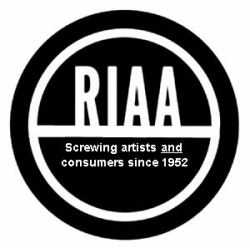| 16th December | |
| Toyota harangue porn star named Lexus
| From the Edmunds.com see
full article |
Toyota's US attorney has sent a cease-and-desist letter to EBoys Studio, based in Switzerland, telling the company to "immediately and permanently cease all use of the name Lexus" in its gay-themed adult films, including DVDs, and the
EboysStudio.com Web site, or face legal action.
EBoys president Daniel Grangier, quoted by the GayWired news service, says the performer chose to be called "Lexus" because it is "the name of a Greek god," not because of the
cars. Grangier said his company's own attorney is "now in negotiation with Toyota's legal team" and will resist demands for a worldwide recall of two films starring the controversially named actor. Comment:
Porsche Lynn 16th December 2007 Thanks to Alan Fascinating! I wonder whether they've also considered clapping a writ on the
American film star called Lexus Locklear. What about Porsche Lynn? Moving away from silly stage names, m'learned friends ought to be able to sue a few vintage erotica sites over images of Alana Ford. I'm sure that Spanish and Latin American
pornographers must engage the servces of ladies called Mercedes. And no doubt some "AV idols" serving as bukkake targets are surnamed Honda or Suzuki.....
|
| 15th December | | |
Network disk drive won't allow remote access to mp3 and video
| From The Register see
full article
See also The Register see
full article |
The Western Digital's 1TB My Book World Edition external hard drive has been crippled by DRM.
The remote-access HDD won't share media files over network connections. [only applies to different login IDs, single user is unrestricted] From the Western Digital site:
Due to unverifiable media license authentication, the most common audio and video file types cannot be shared with different users using WD Anywhere Access.
Western Digital's list of banned file types encompasses over 35 extensions. This
includes AAC, MP3, AVI, DivX, WMV, and QuickTime files. And - why not? — Windows TMP files too.
In fact, the hard drives aren't really crippled at all: if you're a Samba user it's just another bog-standard piece of Network Attached Storage, an
Ethernet drive like any other.
What's "crippled" is Western Digital's optional extra, a virtual file system for Windows users called Mionet. But then it always has been. MioNet is marketed as a virtual filesystem, and permits you to
access your home Windows PC across the internet. It actually does quite a bit more: a shared workspace, and remote device access, for example viewing your webcam remotely. Maybe those in the know can bypass the bollox Western Digital software, but
out of principle, surely a company to avoid.
|
| 12th December | | |
ISP will implement file sharing filters
| From DSL Reports see
full article
|
AT&T is the first ISP to announce voluntarily plans to put mechanisms in place that will filter pirated material from the company's network. The MPAA's Dan Glickman yesterday insisted that all ISPs will soon be following AT&T's lead, and
that it's in their best interest to do so, particularly as they begin getting into the content game.
BroadbandReports.com said: Investors and execs won't like the added costs, customers won't like the restrictions on their p2p use, and it's
likely that much of the technology won't work anyway. NBC has said they'd love to see filters not only employed at the ISP level, but also put into home networking gear. |
| 9th December | | |
Much despised Microsoft Vista feature to be removed
| From ZDNet see full article
|
When Microsoft Vista Service Pack 1 ships sometime in early 2008, it will strip away one of Vista's most annoying features and remove one of the most persistent objections to Vista's adoption. Microsoft plans to remove the infamous “kill switch” from
Windows Vista when SP1 is installed, restoring the Windows Genuine Advantage (WGA) program to its original role as a series of persistent but nonlethal notifications. Senior product manager Alex Kochis laid out the changes for a handful of
reporters and analysts: Based on customer feedback, we will not reduce user functionality on systems determined to be non-genuine
This suggets that the WGA team has finally realized that they need to react forcefully to a year of
embarrassing WGA glitches, server outages, and nonstop customer complaints.
In the current retail copies of Vista, there are dire consequences for failing to activate a retail copy of Windows Vista after 30 days or ignoring the three-day “grace
period” when a system falls out of tolerance after too many hardware changes. When the timer runs out, the desktop turns black and its icons disappear and the Start menu vanishes. You can copy your personal data files, but you can't open them, and you're
granted the right to use Internet Explorer for one hour before being forcibly logged off.
In its post-SP1 incarnation, the penalty for ignoring these activation notices is … more activation notices. The most annoying change is an Activate Now
dialog box that forces you to wait 15 seconds before the matching Activate Later option is available to be clicked.
|
| 8th December | | |
Facebook allow a (partial) opt out to Beacon ads
| From PC World see
full article |
Facebook's CEO and Founder Mark Zuckerberg has profusely apologized for missteps in the design and deployment of the Beacon ad system, but he remains unrepentant about what privacy advocates consider a particularly egregious feature.
While
Wednesday's decision to allow Facebook members to completely decline participation in Beacon has been generally welcomed, privacy advocates will likely keep Facebook in their crosshairs until the system's user tracking mechanism is scaled back.
Announced a month ago as part of what Facebook calls Social Ads, Beacon tracks certain actions of Facebook users on some external sites, like Blockbuster and Fandango, in order to report those actions back to users' Facebook friends network.
[So that they can inform somebody that because their friend has just purchased a particular film and they might like to do so too. But do you really want your friends to know that you have purchased Sex on
Animal Farm? Or more innocently do you want friends to get told what you have just purchased as surprise Christmas presents].
Even critics of Beacon had generally assumed that the ad system limited its non-Facebook tracking and data reporting to
Facebook members who were logged on to the site.
However, in the past week, CA security researcher Stefan Berteau stunned many when he reported that Beacon tracks all users in these external sites, including logged-off and former Facebook members
and even non-Facebook members, and sends data back to Facebook. He also found that logged-in Facebook users who declined having their actions broadcast to their friends still had their data sent to Facebook.
Facebook confirmed that this broad
user tracking function remains untouched in Beacon, despite the changes announced Wednesday, a spokesperson said in an e-mail.
In his latest note regarding Beacon, published Thursday afternoon, Berteau, who is senior research engineer at CA's
Threat Research Group, commends Facebook for the most recent changes, but reminds the company that it needs to go further.
As long as Beacon silently tracks logged-off, former and non-members, people who use Facebook and the sites affiliated with
Beacon face a privacy threat, Berteau wrote.
|
|
|
 The International Music Score Library Project that has provided access to copies of many musical
scores that are in the public domain has been shut down due to a cease-and-desist letter sent to the site operator by a European Union music publisher (Universal Edition).
The International Music Score Library Project that has provided access to copies of many musical
scores that are in the public domain has been shut down due to a cease-and-desist letter sent to the site operator by a European Union music publisher (Universal Edition).  TV-Links.co.uk Raided, Owner Arrested
TV-Links.co.uk Raided, Owner Arrested  The Recording Industry Association of America (RIAA) has found a new target for a copyright lawsuit: Usenet.
The Recording Industry Association of America (RIAA) has found a new target for a copyright lawsuit: Usenet. 